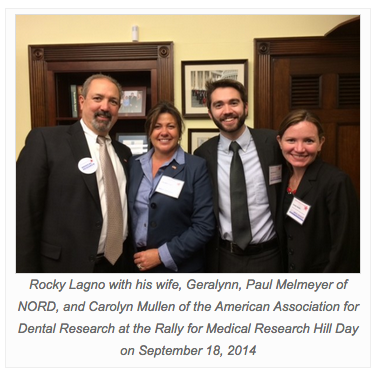Sarah Ford | September 30, 2014
Medical Research Should Be Everyone’s Priority
By Paul Melmeyer
It’s truly amazing to hear everyone’s unique personal story on why medical research is important to them. Whether it’s a parent whose son or daughter is living with a rare disease, a grandparent who has an incurable degenerative disease or a wife or husband whose spouse is battling cancer, everyone’s life in one way or another has been touched by a serious disease without a cure.
This fact makes the following statistics even more baffling. Over the last ten years, the National Institutes of Health (NIH) has received stagnant funding, resulting in the NIH losing nearly 25% of its purchasing power to inflation. Budget cuts in 2013 resulted in 750 fewer patients admitted to the NIH Clinical Center, and 640 fewer competitive grants were awarded. These trends are forcing young researchers to rethink their career path in the U.S. After all, the NIH can only accept one-sixth of grant applications due to funding shortfalls, compared to one-third of applications before this downward trend started.

Get Resources and Insights Straight To Your Inbox
Explore More Articles
The Time to Act is Now
The results of the 2024 National Assessment of Educational Progress (NAEP) are in, and the findings are, in a word, heartbreaking. This assessment serves as…
Read ArticleOpen Position: Non-Profit Account Manager, Employee Assistance Funds & Scholarships (Remote – Full Time)
We are professional, agile, customer-centric and our goal is to inspire employees and organizations to support causes they care about. We help nonprofits fundraise unrestricted,…
Read ArticleEXCITING NEWS: Humane Society of The United States and Humane Society International is now HUMANE WORLD FOR ANIMALS
For over 70 years, Humane World for Animals, formerly called the Humane Society of the United States and Humane Society International, has worked around the globe to…
Read ArticleGet Resources and Insights Straight To Your Inbox
Receive our monthly/bi-monthly newsletter filled with information about causes, nonprofit impact, and topics important for corporate social responsibility and employee engagement professionals, including disaster response, workplace giving, matching gifts, employee assistance funds, volunteering, scholarship award program management, grantmaking, and other philanthropic initiatives.




